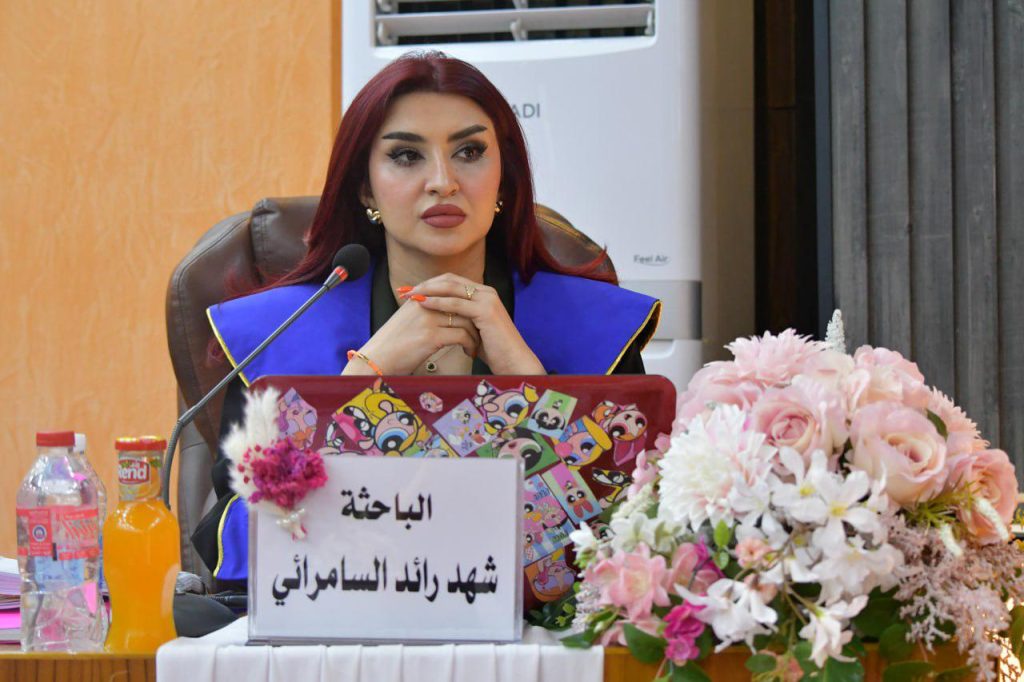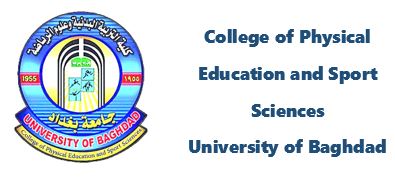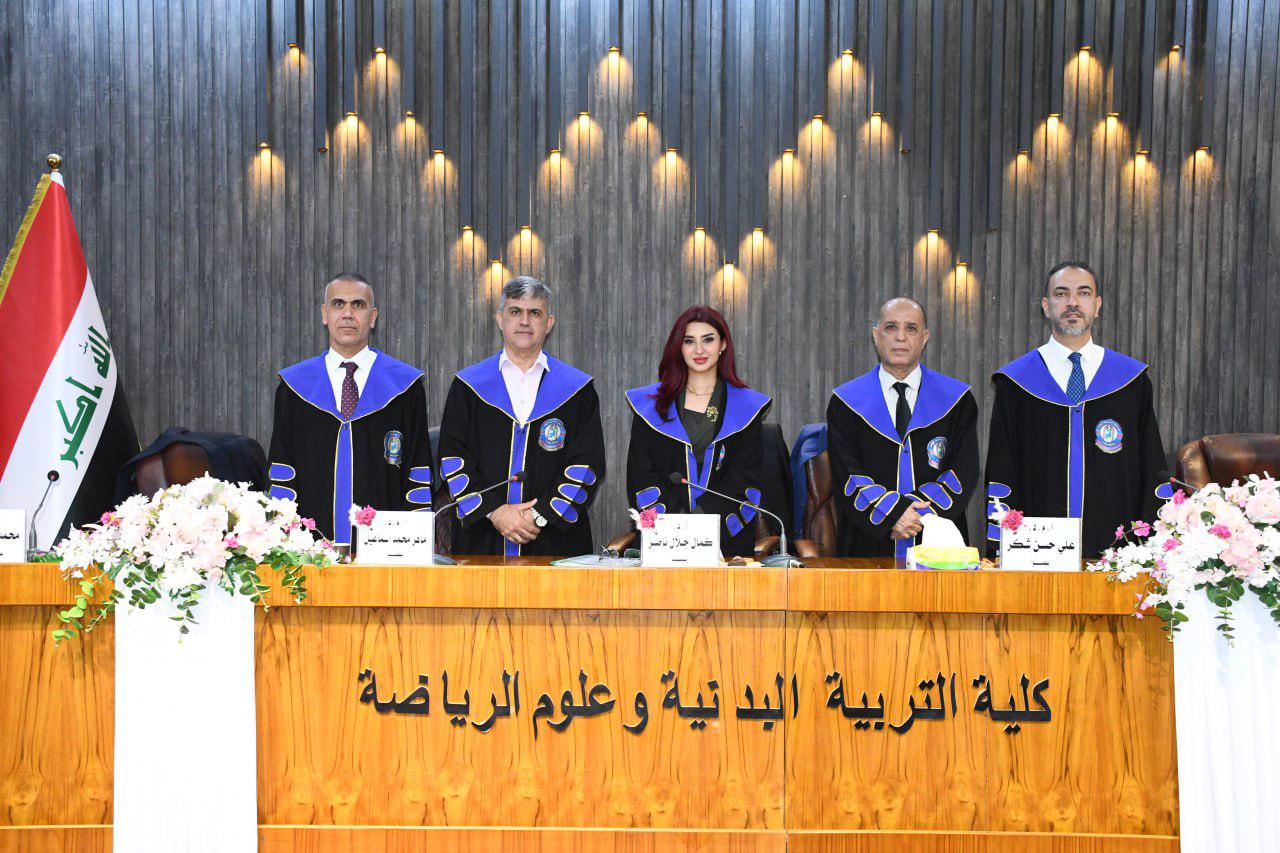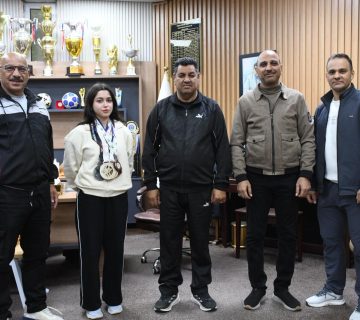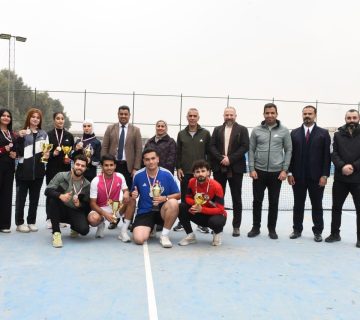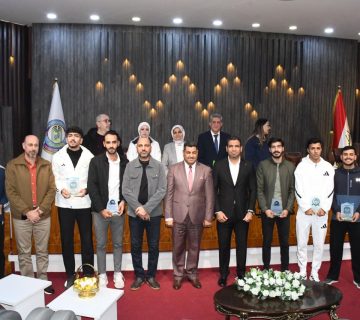The College of Physical Education and Sport Sciences at the University of Baghdad discussed a master’s thesis by the student Shahad Raed Ismail titled “The Effect of Skill-Based Drills from Tennis and Squash on the Transfer of Learning Selected Basic Skills in Padel for Ages 14–16.” The examining committee consisted of:
•Prof. Kamal Jalal Nasser (Chair)
•Asst. Prof. Maher Mohammed Ismail (Member)
•Asst. Prof. Ali Hassan Shaker (Member)
•Prof. Mohammed Hassan Helail (Member and Supervisor)
The importance of this research lies in introducing modern scientific approaches that contribute to advancing athletic performance across various racket sports, in addition to exploring educational tools that support the technical development of young athletes. The study focused on how integrating skill-based drills from tennis and squash could effectively enhance learning core padel skills by leveraging the biomechanical and technical similarities among these sports.
The researcher concluded that there were statistically significant differences between the pre- and post-tests across all studied skills, highlighting the effectiveness of the proposed educational program. Notably, the squash–padel group outperformed in the serve skill, likely due to the considerable overlap in swing paths between squash and padel. Furthermore, the shared grip technique among squash, tennis, and padel significantly facilitated positive transfer of learning.
The research aimed to design and implement a specialized instructional program that builds on the principle of transfer of learning, enabling beginners and young athletes transitioning from other racket sports to acquire basic padel skills more efficiently. Based on these findings, the researcher recommended adopting this educational approach—particularly starting with mastering the forehand stroke, as it serves as a cornerstone across all racket sports—and emphasized structuring training curricula by sequencing skills progressively from technically related sports like tennis and squash to padel.
By introducing innovative educational tools to enhance skill acquisition, this research aligns with Sustainable Development Goal 4: Quality Education and Goal 3: Good Health and Well-being, supporting modern teaching practices and promoting lifelong physical activity.
